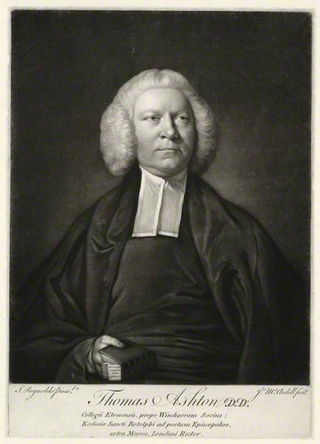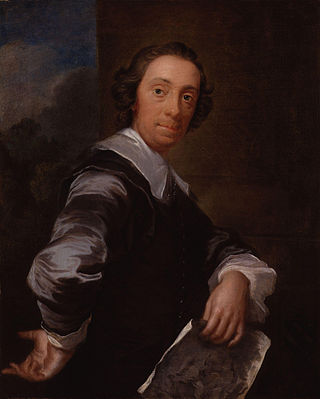Related Research Articles
John Asgill was an eccentric English writer and politician.
Edward Aglionby was an English Member of Parliament, official, translator and poet. He was closely associated with the Dudley family.

Sir John Cust, 3rd Baronet PC, of Belton House near Grantham in Lincolnshire, was a British politician who served as Speaker of the House of Commons from 1761 to 1770.
Joseph Chitty was an English lawyer and legal writer, author of some of the earliest practitioners' texts and founder of an important dynasty of lawyers.
Edward Strutt Abdy (1791–1846) was an English legal academic and abolitionist, notable as an author on racism and race relations in the United States.

Nicholas Hardinge (1699–1758) was an English civil servant, clerk to the House of Commons from 1731 to 1752 and then Secretary to the Treasury, and a Member of Parliament known also as a Neo-Latin poet.
Sir John Bramston, the younger, was an English lawyer and politician who sat in the House of Commons from 1660 to 1679. The son of Sir John Bramston, the elder and his first wife Bridget Moundeford, daughter of Thomas Moundeford, he was educated at Wadham College, Oxford, and called to bar at Middle Temple in 1635. In 1660 he was elected to the Convention Parliament for the county of Essex and again in the Cavalier Parliament of 1661. He frequently acted as chairman of committees of the whole House of Commons of England and was returned to parliament for Maldon in 1679 and 1685. He left an autobiography.
Robert Ashley was an English lawyer and translator during the reigns of Elizabeth I and James I, and a Member of Parliament for Dorchester.

Thomas Ashton, D.D. (1716–1775) was an English cleric.
Henry Atkins (1558–1635) was an English physician.
Montagu Bacon (1688–1749) was an English scholar and critic.
William Day (c.1605–1684) was an English cleric and biblical commentator.

Nicholas Fazakerley (1685?–1767), of Prescot, Merseyside, was an English lawyer and politician who sat in the House of Commons from 1732 to 1767.
John Baynes (1758–1787) was an English lawyer and miscellaneous writer.

Richard Bentley was an English writer and designer who was friends with Thomas Gray and Horace Walpole.
Henry Coventry was an English religious writer.
William Boscawen was an English barrister, author and translator.
Anthony Champion was an English lawyer and politician. A volume of his poetry and other writings was published after his death.
References
- 1 2 "Allen, Anthony (ALN702A)". A Cambridge Alumni Database. University of Cambridge.
- 1 2 3 Handley, Stuart. "Allen, Anthony". Oxford Dictionary of National Biography (online ed.). Oxford University Press. doi:10.1093/ref:odnb/370.(Subscription or UK public library membership required.)
- ↑ "Anthony Allen 1685-1754 - Book Owners Online". www.bookowners.online. Retrieved 29 September 2022.
- Stephen, Leslie, ed. (1885). . Dictionary of National Biography . Vol. 1. London: Smith, Elder & Co.
- Chalmers, Alexander. The General Biographical Dictionary: Containing an Historical and Critical Account of the Lives and Writings of the most Eminent Persons in Every Nation; Particularly the British and Irish; from the Earliest Accounts to the Present Time. new ed. rev. and enl. London: Nichols [et al.], 1812–1817. 32 vols.
- Attribution
![]() This article incorporates text from a publication now in the public domain : Stephen, Leslie, ed. (1885). "Allen, Anthony". Dictionary of National Biography . Vol. 1. London: Smith, Elder & Co.
This article incorporates text from a publication now in the public domain : Stephen, Leslie, ed. (1885). "Allen, Anthony". Dictionary of National Biography . Vol. 1. London: Smith, Elder & Co.